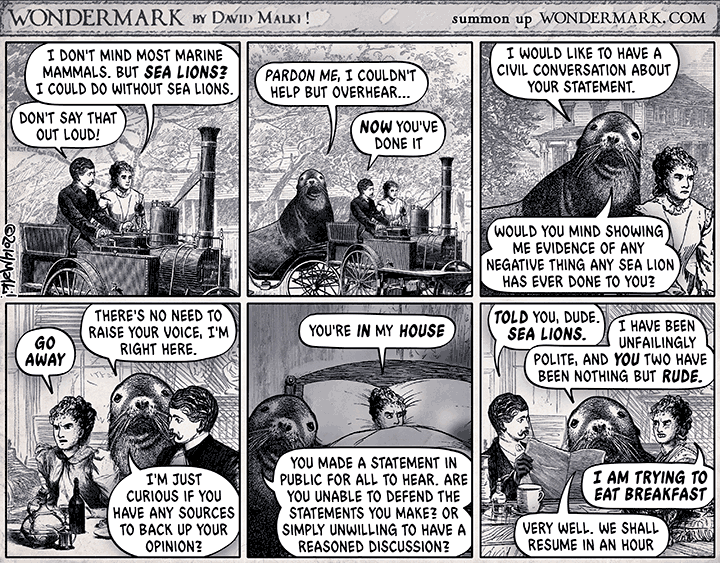this post was submitted on 28 Feb 2024
747 points (96.3% liked)
Comic Strips
12621 readers
3192 users here now
Comic Strips is a community for those who love comic stories.
The rules are simple:
- The post can be a single image, an image gallery, or a link to a specific comic hosted on another site (the author's website, for instance).
- The comic must be a complete story.
- If it is an external link, it must be to a specific story, not to the root of the site.
- You may post comics from others or your own.
- If you are posting a comic of your own, a maximum of one per week is allowed (I know, your comics are great, but this rule helps avoid spam).
- The comic can be in any language, but if it's not in English, OP must include an English translation in the post's 'body' field (note: you don't need to select a specific language when posting a comic).
- Politeness.
- Adult content is not allowed. This community aims to be fun for people of all ages.
Web of links
- !linuxmemes@lemmy.world: "I use Arch btw"
- !memes@lemmy.world: memes (you don't say!)
founded 1 year ago
MODERATORS
you are viewing a single comment's thread
view the rest of the comments
view the rest of the comments

You know I kind of find it funny that the internet has kind of, invented a million different technical debate sounding words for basically just "people that I don't like". It doesn't really matter whether or not the person is actually "sealioning" anymore, or whether or not the word ever had a definition in the first place, because it's just something that you're gonna get slapdash labeled with when someone doesn't like your line of argument, or the fact that you've disagreed with them, or whatever. Thought-terminating cliche, oh, there's another buzzword, and, oh, ironically, there's another one.
Oops, you're a troll, you're a bot, you're a sealion, you're strawmanning my position, you're arguing in bad faith. Signals get crossed over the written medium, anyone will inevitably think someone else is arguing in bad faith when they're not. There's better insurance, better strategies against that, then just kind of labeling it and then moving on.
I think the biggest problem is that labeling the behavior doesn't really tell you what your response should be. If someone is arguing against you in bad faith, you sort of have the options of, arguing back against them in equal measure, equally bad faith, which I would say is the trap most people fall into. You also have the option of arguing against them as though you don't recognize them as being in bad faith, while being as courteous and nice as possible, which can go some amount of the way to clarifying that you're not arguing in bad faith if you've been mistaken. Or you can just not respond, which is probably a good idea. Don't feed the troll, don't reward them with attention.
But also, to some degree, someone else arguing in bad faith shouldn't really matter. What should matter, I would think, is whether or not they're arguing correctly. If they're doing so incorrectly, then they're not going to be giving you anything interesting to work off of, and then you should probably just ignore them. That's my advice. It's like, they're just a more advanced form of spam, and the solution to spam is pretty simple. You block it, you ignore it.
Found the sea lion.